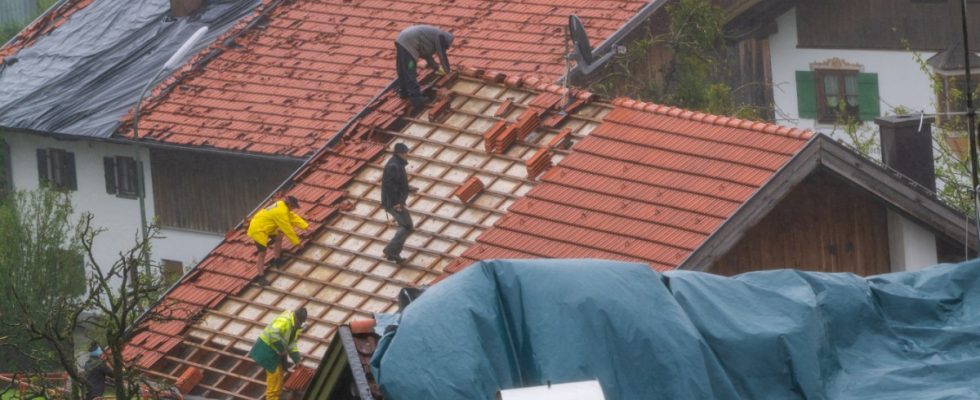Josef Landes says his house is still in ruins. First came the hail, which shot through the roof tiles like little cannonballs. Then the rain flooded everything. A disaster. “I’ve never experienced anything like that,” the farmer said on the phone at the end of December. The roof: “just flew apart”. It’s been patched up now, but nothing has happened inside yet. It took two months just to dry the floors and walls. And now the craftsmen don’t have time. The house? Currently uninhabitable. “I’m with my sister, in a holiday apartment,” says the 67-year-old.
The severe hailstorm lasts four months Denis now. On August 26th, he devastated not only the country’s old farmhouse, but a total of almost 400 buildings in the village of Bad Bayersoien. The Bavarian Insurance Chamber estimates the damage in southern Upper Bavaria at 230 million euros – the second largest loss event in the company’s history.
The wounded village is the largest, but by no means only, victim of a year with many extreme weather events. Anyone who works through the records of the German Weather Service (DWD) at the end of 2023 will repeatedly come across superlatives: driest June, heat record in July, warmest autumn, extreme drought in September, wettest November and so on. According to the EU climate change service Copernicus, the year 2023 will be the warmest year ever recorded worldwide – with consequences for the people in Bavaria.
On August 17th, just a few days before the hail catastrophe in southern Bavaria, Nuremberg sank in heavy rain. Up to 85 liters per square meter fell within two hours; according to the city, it was the “heaviest rain event ever measured in Nuremberg”. The power went out in parts of the city, underpasses were flooded, and cars literally sank. In Weißenburg, Central Franconia, parts of the 15th century city wall that were in need of renovation collapsed during the storm.
Another extreme at the beginning of December: half a meter of snow fell in southern Bavaria within one day. In and around Munich, rail operations collapsed and the region was under a white blanket for days. In Werdenfelser Land, weeks later, trains only run at emergency intervals because the frost damaged many vehicles.
Scientists have been preaching for years that extreme weather will increase due to global warming. Not every local event can immediately be blamed on climate change; climate is not weather. But frequency and strength increase, that’s physics. “With every degree increase in temperature, the air can hold seven percent more water, which means that precipitation becomes more intense,” said Munich climate researcher Annette Menzel in a recent SZ interview. “We will have to prepare for such situations.”

